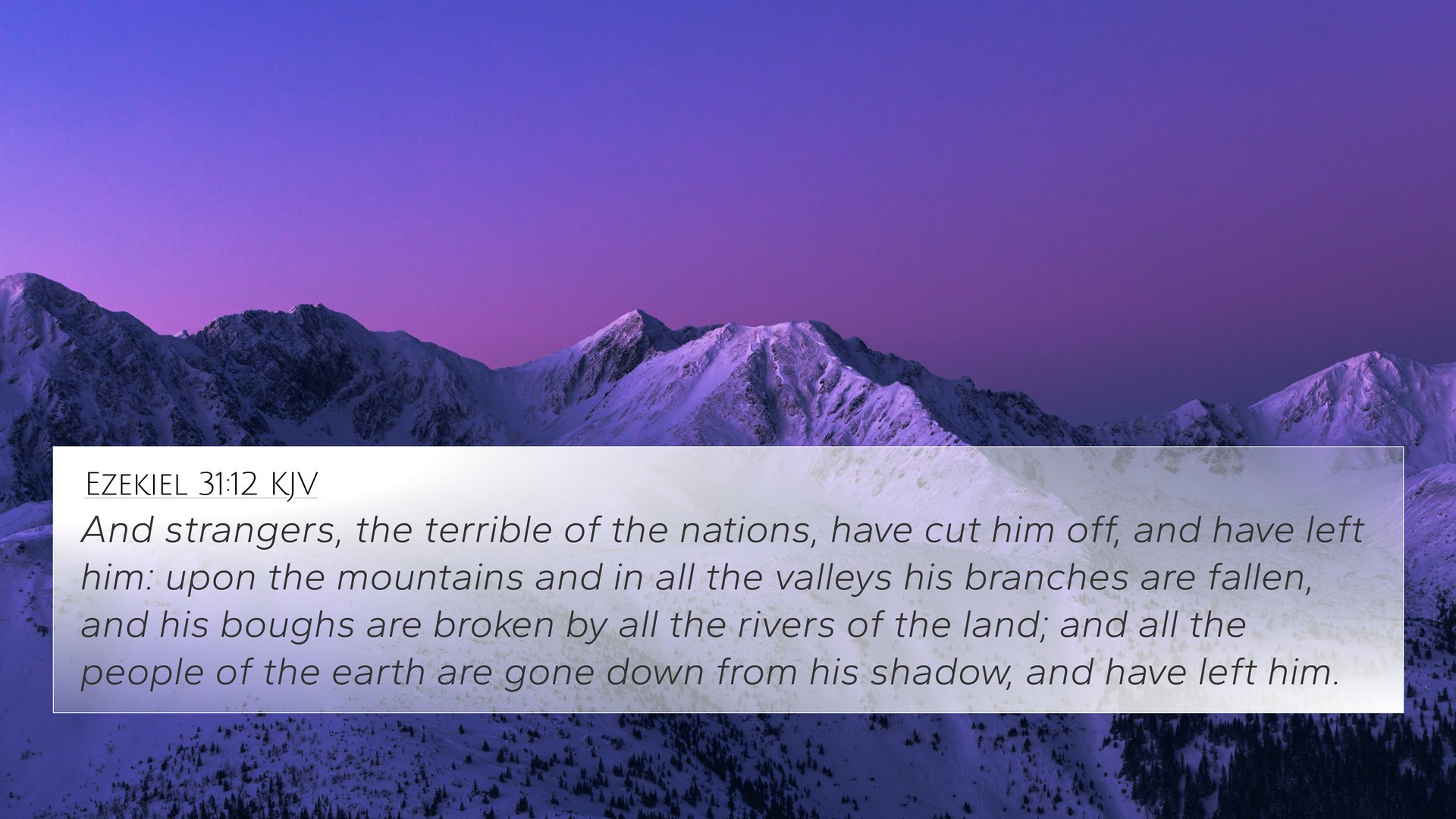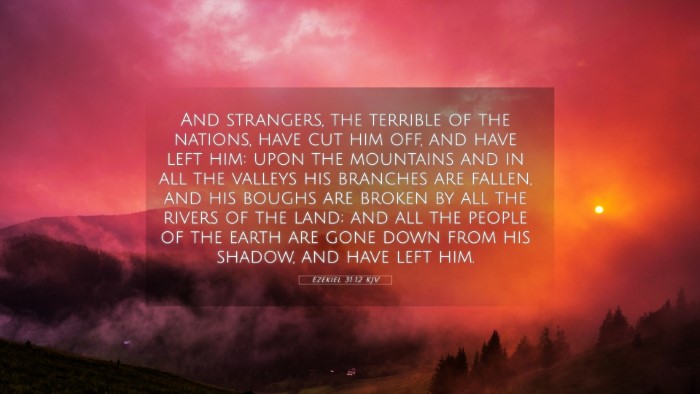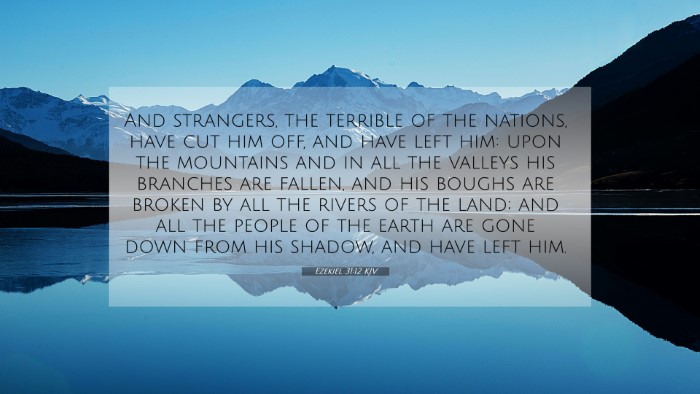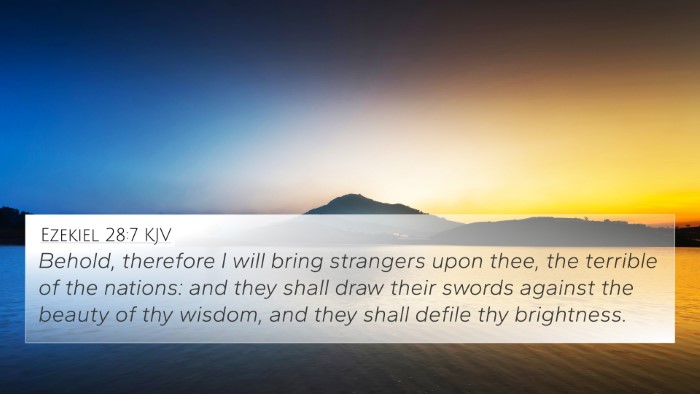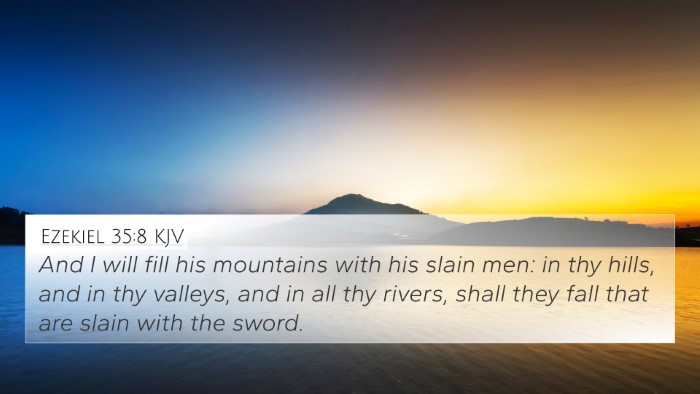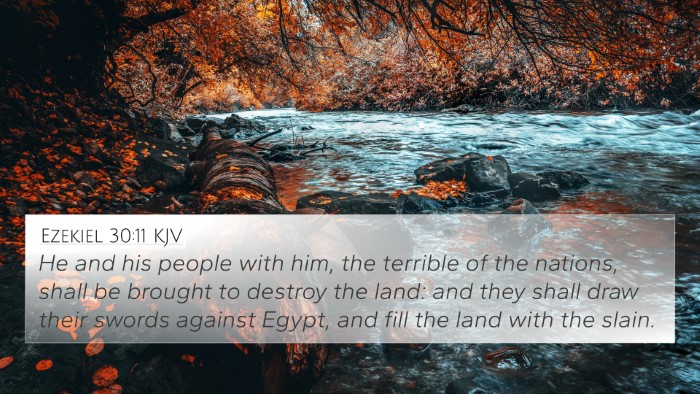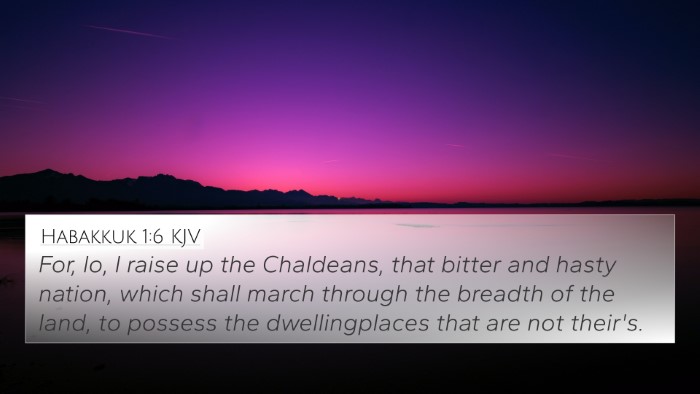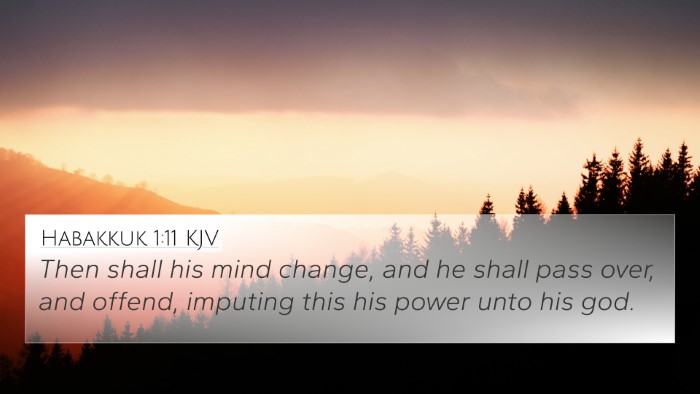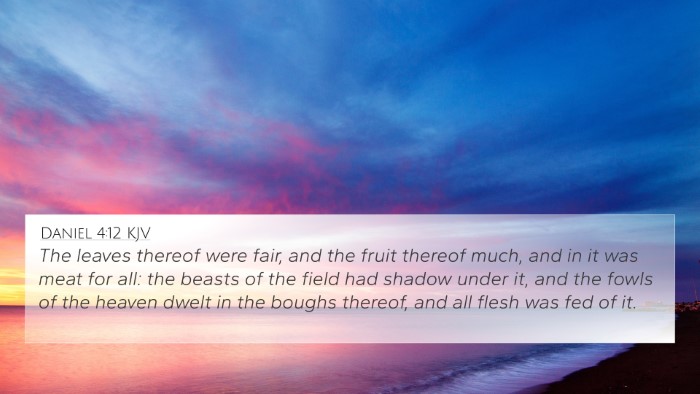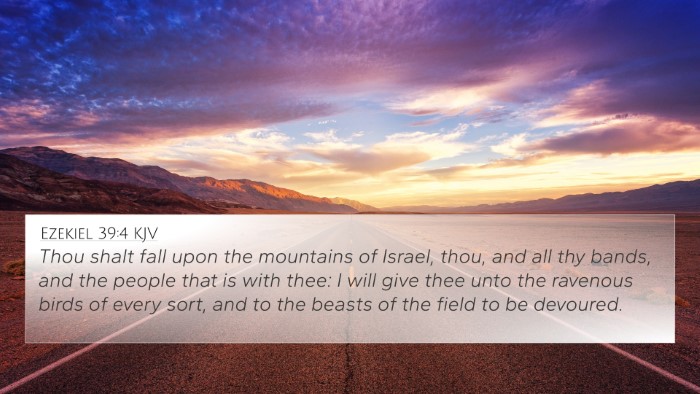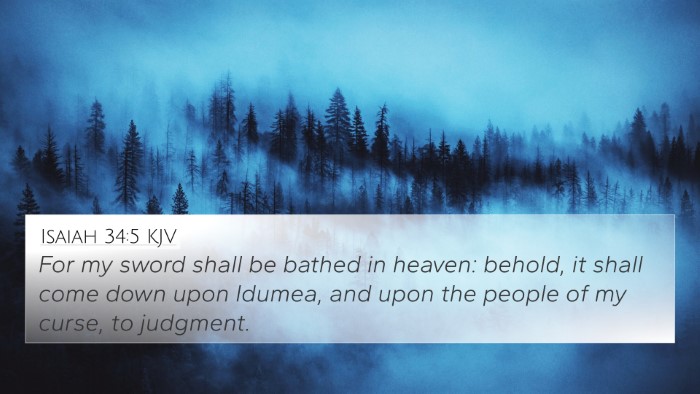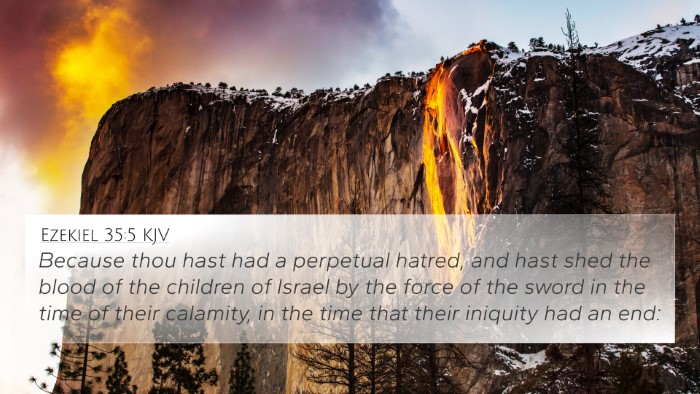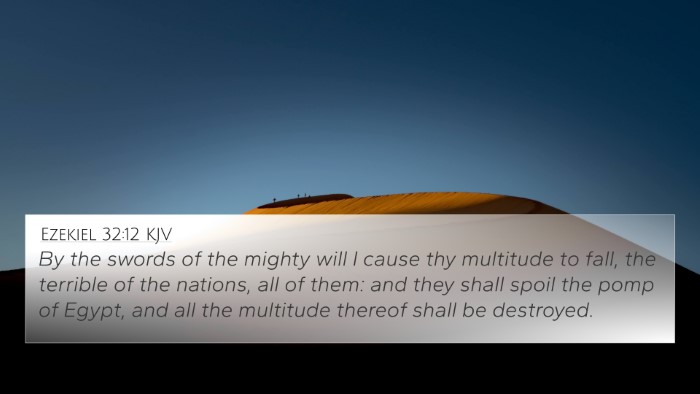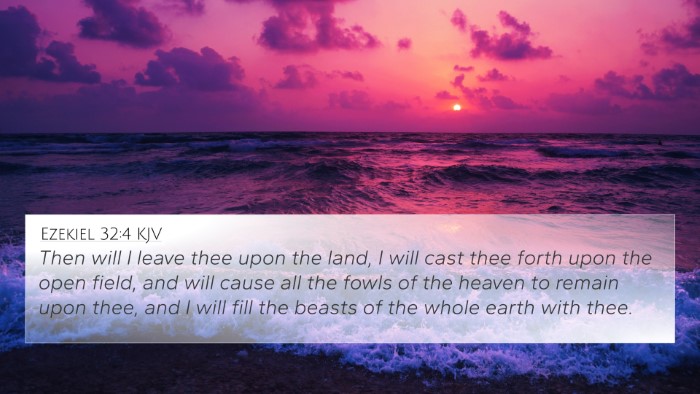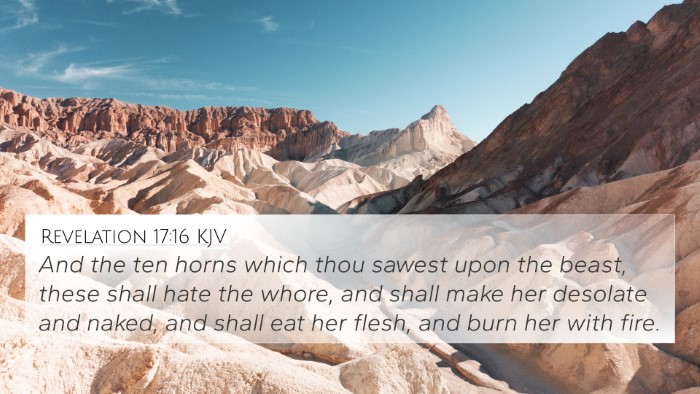Ezekiel 31:12 - A Comparative Bible Verse Analysis
The verse Ezekiel 31:12 reads: "And strangers, the terrible of the nations, have cut him off, and have left him: upon the mountains and in all the valleys his branches are fallen, and his boughs are broken by all the rivers of the land; and all the people of the earth are gone down from his shadow, and have left him."
Understanding the Context
This verse comes from a prophetic imagery found in the Book of Ezekiel, where the prophet uses a mighty tree as a metaphor to illustrate the fate of Egypt. The "strangers" and "terrible of the nations" symbolize foreign powers that came to oppress and cut down the pride of Egypt—the tree in this metaphor.
Insights from Public Domain Commentaries
This section distills wisdom from noted biblical commentators including Matthew Henry, Albert Barnes, and Adam Clarke, providing a deeper meaning of Ezekiel 31:12.
Matthew Henry's Commentary
Henry reflects on this passage as a warning against pride and reliance on worldly power. He emphasizes that nations, like the tree, may seem grand and mighty, but they are ultimately subject to the will of God. The 'strangers' represent those powerful nations that, in their might, bring down what once was revered.
Albert Barnes' Notes
Barnes points out the desolation that comes as a result of divine judgment. He explains that the cutting down of the tree signifies the downfall of Egypt’s power. The imagery illustrates the departure of nations from the shadow of the prideful entity, indicating a loss of respect and support as judgment unfolds.
Adam Clarke's Commentary
Clarke elaborates on the symbolic meaning of the 'mountains' and 'valleys.' He interprets these locations as representations of different nations and people that are affected by Egypt’s downfall. This imagery serves to convey that the reach of Egypt’s influence has been severed, backed by the stern intervention of God through the very nations they once influenced.
Cross-References and Thematic Connections
Ezekiel 31:12 shares significant connections with other verses in the Bible. Below are several cross-references that enhance understanding of its themes:
- Isaiah 10:33-34: This passage speaks of the Lord cutting down the tall trees with a powerful arm.
- Jeremiah 46:25: Here, it discusses the destruction of Egypt as a representation of the breaking of the nation’s pride.
- Ezekiel 17:24: Another metaphor of trees is presented, offering insights into God’s sovereignty over nations.
- Ezekiel 19:10-14: This passage also uses the metaphor of a lioness and her cubs to signify the pride and downfall of Judah.
- Revelation 18:2: The fall of Babylon reflects the same themes of destruction and the loss of influence.
- Matthew 3:10: The axe being laid to the root of the trees symbolically mirrors the impending judgment upon nations.
- Proverbs 16:18: Pride precedes destruction, echoing the idea presented in Ezekiel that nations trusting in their might face downfall.
- Psalm 37:35: It expresses the transient nature of wickedness, paralleling the fate of the tree in Ezekiel.
- Daniel 4:14: This details the cutting down of King Nebuchadnezzar's prideful nature, a parallel theme in Ezekiel.
- Luke 1:52: Speaks to the idea of the mighty being cast down, reinforcing the judgment theme.
Thematic Bible Verse Connections
In Ezekiel 31:12, we see themes of pride, judgment, and the nature of God’s sovereignty over nations. Several related themes unfold throughout the Bible:
- Divine Judgment: Consistently seen throughout both Old and New Testaments, reinforcing the consequences of rejecting God’s authority.
- Pride and Fall: The repeated motif that pride in one's own might leads inevitably to downfall.
- God's Sovereignty: The control God exercises over the nations, reflecting His ultimate authority in history.
Conclusion
Understanding Ezekiel 31:12 through the combined insights of these commentaries and the thematic connections with other Bible verses allows for a richer interpretation of its warning against pride and the transient power of nations. By cross-referencing these biblical texts, one can better grasp the intertwined lessons that scripture offers regarding the nature of human pride and divine judgment.
